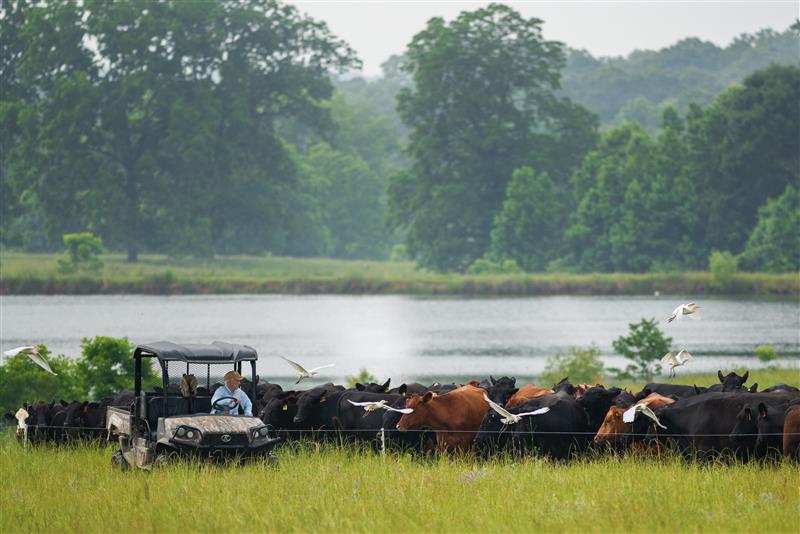Noble Research Institute, Ardmore, Oklahoma, has announced the release of its newest program, Noble Land Essentials Online. This fully online and self-paced version of Noble’s in-person course focuses on teaching farmers and ranchers soil health principles to restore and improve their grazing lands.
Registration for Noble Land Essentials Online is now open. Livestock producers interested in participating can visit www.noble.org/noble-land-essentials/ for more information or to register. Above, Cooper Hurst moves cattle from one pasture to the next as part of an adaptive multi-paddock grazing methodology, at the Hunt Hill Cattle Company in Woodville, Mississippi. (Photo courtesy of Rob Mattson/Noble Research Institute.)

Noble Land Essentials Online offers participants the same fundamental information as the two-day in-person course, including how to develop and implement a land management plan for their operation, assess and improve their current financial situation to maximize profits and understand how to apply the soil health principles to reduce the need for costly inputs.
Added benefits for Noble learners include a 45-minute consultation session with experienced Noble advisors to address challenges and goals specific to their operation, an invitation to monthly Rancher to Rancher virtual peer-to-peer discussion sessions and other exclusive tools and resources housed in the online Noble Learning Center platform.
With the addition of Noble Land Essentials Online to its growing suite of educational programs, Noble hopes to make learning about regenerative land and business management more accessible and achievable for farmers and ranchers across the U.S.
“The Noble team understands how important it is to meet livestock producers where they are when it comes to supporting them in reaching their business and management goals,” said Steve Rhines, president and CEO of Noble Research Institute. “Noble Land Essentials Online and our future online programs will help bridge the gap for producers who want to expand their skills and knowledge but need a more flexible option for learning.”




